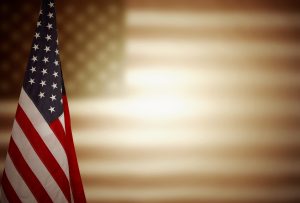We have probably all heard the commonly quoted statistic that 22 veterans a day are committing suicide. This is such an alarming statistic- it calls our hearts into action. How do we recognize some signs of suicidal ideation? It may not always be possible to recognize a crisis while it’s happening. However, sometimes there are warning signs, such as: depression, hopelessness, anxiety, mood swings, trouble sleeping, feeling a lack of life purpose or as a failure, rage, engaging in self-harm or risky behavior, substance abuse, social isolation, violence, giving away personal belongings, getting end of life affairs in order, planning ways to hurt oneself, etc. We have found that veterans and community go hand in hand and if the proper resources are available, our veterans will succeed.
If you suspect a veteran is at risk if suicide please do not hesitate to call 911.
- Suicide Prevention Hotline: 800-273-8255 (Veterans press 1).
- Confidential chat at VeteransCrisisLine.net, or text 838255.
- Veteran to Veteran Assistance call or text 888-777-4443.
Loss of Community
Let’s consider some of what may be behind this growing crisis and what can be done locally to support our veterans.
Many veterans may actually be grieving the loss of community and/or resources that they had grown accustomed to during their military experience. The sense of camaraderie is an integral part of the military experience which spans across all branches of service. This community is often what made the difficult times during military service bearable. In fact, some of the bonds made during military service can be so tight-knit that civilian relationships are hard to compare. The shared values and loyalty among comrades might have also brought a sense of security among brothers and sisters in arms.
As such, the civilian world can seem daunting as one attempts to transition back into a world without as much structure and built-in community. Other veterans may be around, but may be kept at a distance due to various distractions such as career, family, financial burdens, etc. Perhaps the demands of civilian life may seem to create many walls and boundaries between individual people civilian and veteran alike until loneliness becomes a major burden.
Veteran Groups
Are local veteran groups the answer to bridging the gap between military and civilian lifestyles? Yes and no. Local veteran groups are imperative to the wellbeing of veterans and their families alike. These groups influence the civilian community as well by promoting patriotism and drawing up support at various levels. Advocacy, emergency assistance, social opportunities, and other outreach efforts are often generated through these local groups in order to impact veterans and their families in such amazing ways.
Another issue that often comes up is the sibling rivalry among branches, eras, genders, and etc… this might be all fun and games for the most part. Go Army! Go Navy!
Finding a Veteran Group
When considering local veteran groups there are myriad options. Among these are branch specific groups, era-specific groups, all- inclusive groups, and more. There are so many small, local veteran groups that it may be hard to find a good fit or perhaps, some veterans may feel like they aren’t welcome or don’t qualify to be part of one or more of these smaller veteran groups. While these separate groups may seem to be focusing on different aspects of the veteran experience, in reality there may often be an often unspoken sense of competition for members, donations, resources, community influence, and even validation. This may not always equate to a recipe for rebuilding a new civilian camaraderie among local veterans. This can actually lead to further alienation if relationships are not fostered among brothers and sisters in arms in the civilian world.
Veterans Need to Work Together
Veterans need support, connection and stability. They also need to work together. We may be separate but we can still be one. In fact, collaboration and communication is key in the ever changing, dynamic society we live in today. For example, if a fellow veteran is facing some challenges like a family issue, financial burden, legal battle, or some sort of challenge, instead of looking and pointing, whispering and mocking, or ignoring the problem all together, local veterans can band together and leave no battle buddy behind. Veterans can take care of each other, and sometimes this will require working together with fellow veterans groups.
Veterans need to band together and rebuild the camaraderie for each other. We must not leave any brother or sister behind. Too many of us have been lonely, suicidal, homeless or otherwise in need. There should never be a moment that a veteran feels like they have nowhere to turn. The solution is to bring our military values into the civilian world with us.
How can we do This?
How can we do this? It is easy because, for the most part, veterans instantly feel a sense of connection when they discover that they are in contact with a fellow veteran. Each veteran has special strengths, be it fundraising, be it laughter, be it the gift of gab, the art of presence, mentorship, the ability to hold a hand, the thoughtfulness of a phone call, companionship, home building, coffee drinking, event planning, networking, etc. Any moment spent together and serving one another can be priceless – life saving in many cases. We all need to be understood, seen, and to belong. We already do belong. To each other. This is a call to each and every veteran: male and female, old and young, deployed and not, disabled and not. Veterans (and their families) absolutely need each other.
Just remember...
If any veteran is reading this, and you feel like you are all alone, please know that you are surrounded by your fellow veterans. We are here and we are regaining our voice and presence. You, brother or sister, are important and already part of a community that values your existence. We need you and you need us. We are veterans and we can count on each other. We are family. Please let us know you are here, we miss you, come home… the light is on.





